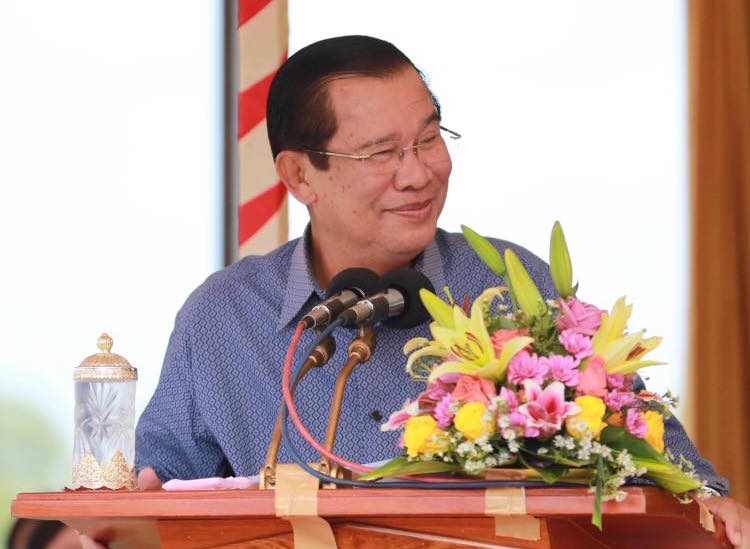Days after promising garment workers a minimum wage of at least $168 starting next year, Prime Minister Hun Sen on Wednesday made another pitch for their votes in the July national election with a “three asks” policy.
In a jab at the opposition CNRP and independent unions, he said he would also speak to the U.N. about launching an investigation into who led the mass protests and garment strikes that followed 2013’s disputed national vote. Mr. Hun Sen also speculated that a young man whose body was never found after a January 3, 2014, protest during which military police shot and killed at least five workers may instead have been a victim of drugs.

During the 2014 protest, along Phnom Penh’s industrial Veng Sreng street, a witness said he saw Khem Sophath lying on the ground bleeding profusely. His family says he has not been seen since and his body was never found. Rights groups and opposition lawmakers have criticized the government’s investigation into the case, which has turned up nothing.
On Wednesday, speaking to thousands of garment workers at the Phnom Penh Special Economic Zone, Mr. Hun Sen said Khem Sophath’s disappearance might have had nothing to do with the protest. Instead, he turned the blame on those pushing for the investigation to move forward and said those behind the protest should be arrested.
“[He’s] missing. Sometimes they may involve drugs,” he said of missing persons cases. “Then they ask the government to find him. The leaders of the demonstration should be put in jail.”
Leaders of some of the country’s independent unions were charged over the strikes and protests that hit the garment sector in the wake of the 2013 elections, though none have been jailed. In 2015, the Phnom Penh Municipal Court also questioned CNRP President Kem Sokha, the party’s vice president at the time, over both the garment protests and several demonstrations the opposition led challenging the results of the election, which it accused the ruling CPP of stealing.
“One day I will talk about this issue to the United Nations, whether we should investigate and arrest the leaders of the demonstrations for questioning,” Mr. Hun Sen said on Wednesday.
The prime minister also rolled out what he called the CPP’s “three asks” policy to win the garment worker vote next year, describing a push to increase foreign aid, foreign investment and exports. Garment exports topped $6 billion last year and accounted for the bulk of export earnings.
Mr. Hun Sen called the opposition the “three don’ts” party for allegedly opposing all three initiatives.
The CNRP has urged foreign governments to make their aid, investments and imports contingent on human rights and democratic reforms in Cambodia.
CNRP lawmaker Son Chhay on Wednesday rejected the prime minister’s characterization, insi-
sting the party was for any business with other countries that helped Cambodians.
“It is not like the prime minister claimed. We encourage our people to get a higher income, like urging investment in Cambodia to reduce the number of migrant workers,” he said.



